What is cultural exchange and how to experience it?
Discover the beauty of cultural exchange! Learn about diverse cultures, new languages and broaden your worldview. Start your global journey now!
7min
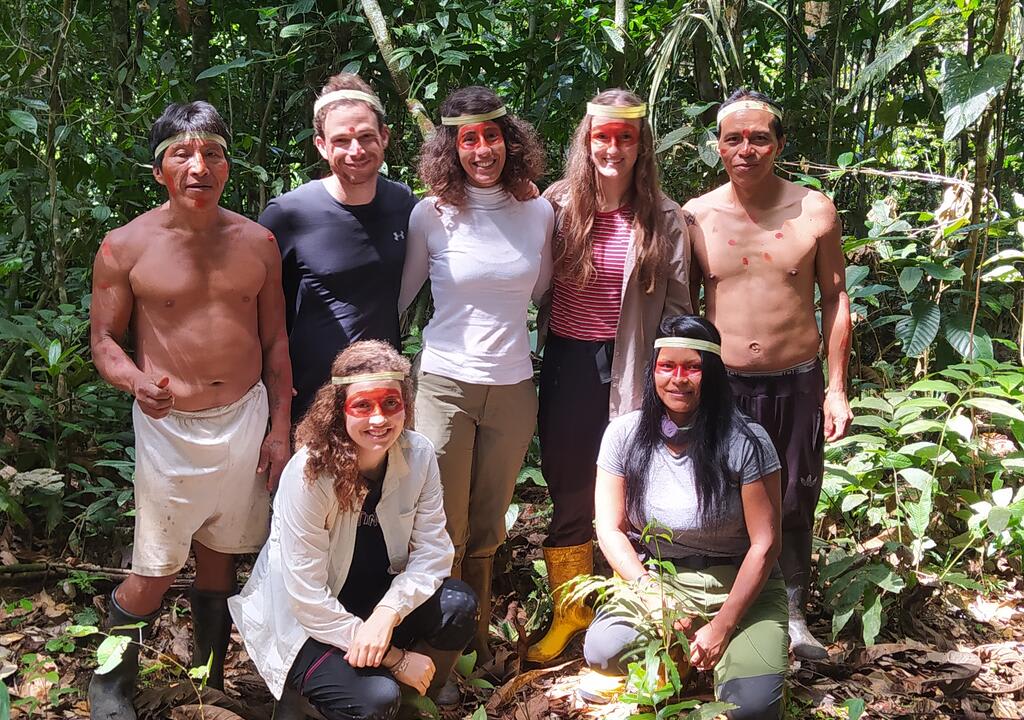
The world is a vibrant tapestry, woven with countless cultures and traditions. The process of cultural exchange not only enriches your life but also fosters understanding and respect among diverse communities.
Cultural exchange breaks down barriers, helping to eliminate prejudices we may have about what is unknown to us. Imagine immersing yourself in Japanese tea ceremonies or dancing at a Brazilian carnival. Exciting, right?
But here’s the best part… You don't necessarily need to pack your bags or hop on a plane for this global expedition - even at home there are penty of opportunities for learning about different cultures.
Also, take a look at: The magic of cultural experiences: how they can enrich your journey
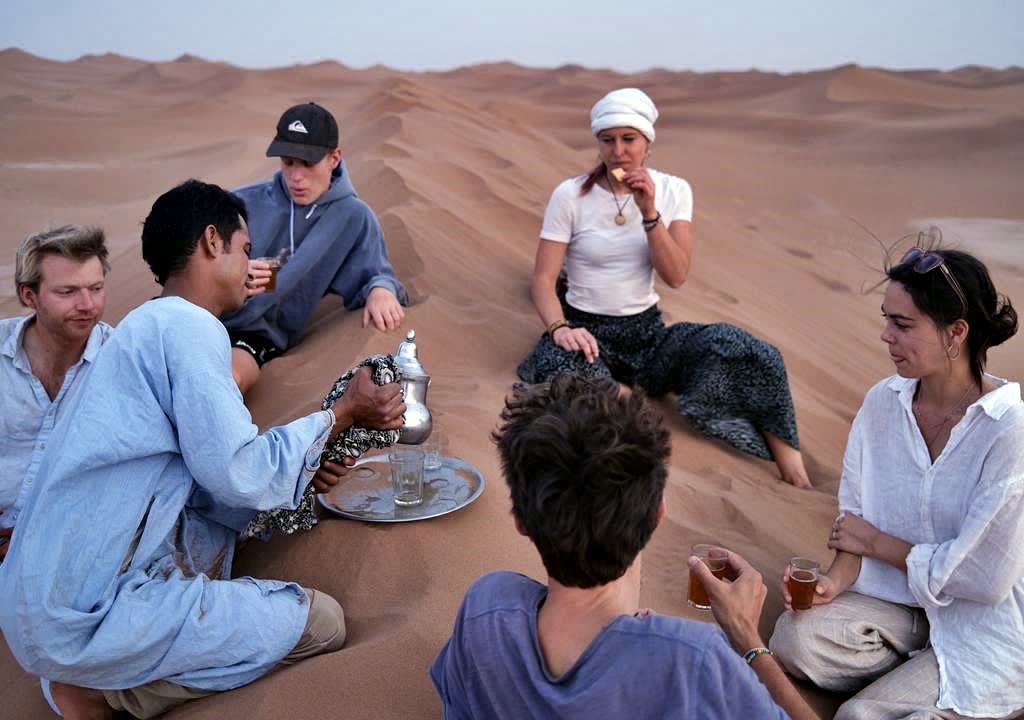
What is cultural exchange and why is it important?
Cultural exchange, at its core, involves the sharing of ideas, values, traditions, and other aspects of culture among people from different backgrounds. This can occur both within one's own community or across borders while traveling.
The internet has made it easier than ever to share information gathered from around the globe. However, nothing beats firsthand experiences with local people in new environments for fostering genuine understanding and appreciation of diverse cultures.
The benefits of cultural exchanges
We exist in an ever-intertwined world. In such times, cultural exchanges serve to broaden our perspectives by exposing us to diverse traditions, values, and beliefs. The learning goes beyond what any textbook could teach.
Cultural exchanges offer numerous benefits on both a personal level and on a broader scale. It provides an opportunity to learn about different ways of life directly from those who live them - no travel agencies required.
You get to see your own customs through fresh eyes too, as you explain them to others.
In addition to these advantages for individuals involved, there are larger implications too. When we understand each other better, we are more empathetic and even conflicts may be more easily resolved.
Read about Ethical travel: How to support locals and be responsible during your travels.
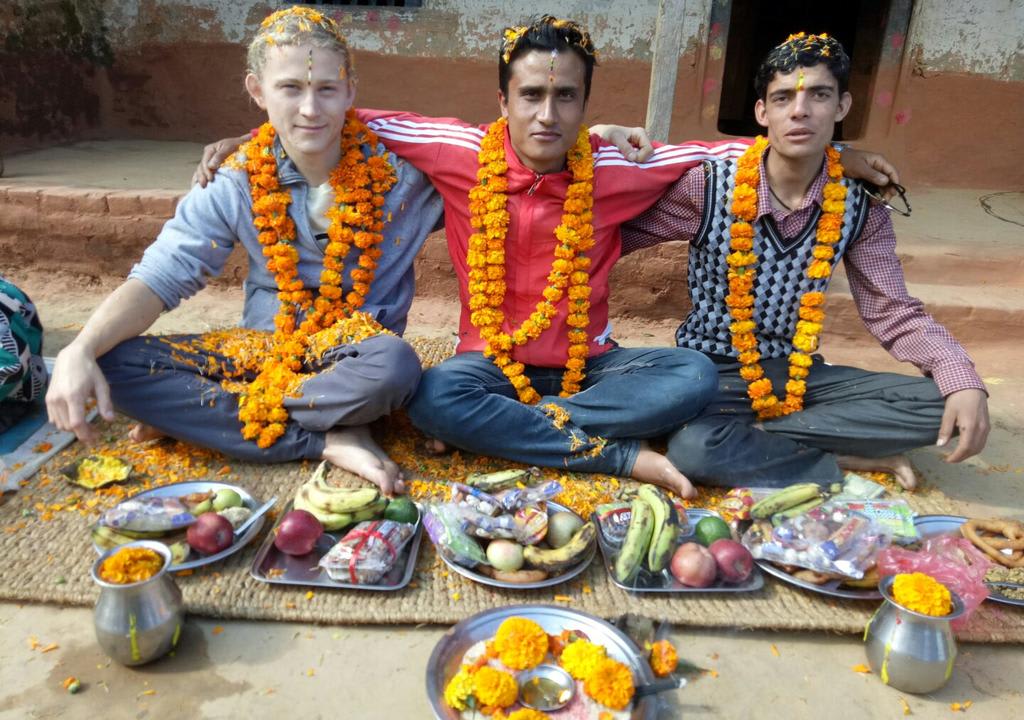
Cultural exchange activities
There are many ways in which you can involve in a cultural exchange, either at home as well as traveling.
Research about different cultures
Cultural exchange starts with a simple yet crucial step: research.
Grasping the customs, beliefs, and values unique to different cultures can pave your way towards meaningful connections with local people during your travels or when meeting them at your home country. For instance, learning about Chinese culture can make your next visit to a Chinatown completely different.
Navigating cultural norms and etiquette
Cultural norms aren't universal; they vary extensively worldwide. Something considered normal behavior in one part of the world might not hold true elsewhere - take tipping practices for instance: customary in the United States but frowned upon in Japan. Same goes for walking into a house with your shoes on.
Websites like Commisceo Global Country Guides (commisceo-global.com/country-guides) share information gathered regarding etiquette across various cultures globally - an invaluable resource when trying to navigate these nuanced differences respectfully.
This knowledge is essential when traveling abroad to show respect and appreciation of the local culture, practices and beliefs, even if they significantly diverge from our own values. At the end of the day, it's a two-way street where both parties learn and grow in the process.
Participate in local events
Diving into local events is an amazing way to experience a culture firsthand. Attending local gatherings provides an opportunity to interact with inhabitants, learn their practices and rituals, and create lasting recollections.
Every place has its unique festivals that reflect the essence of its people's spirit, be it through music, dance, or food.
Beyond grand festivities though lie smaller community gatherings - neighborhood fairs showcasing locally grown produce or shared hobbies. These intimate settings offer valuable insights too.
Also sports can be on your list - The joyous uproar during such games reveals much about how people bond over common interests. So why not join them? You may even find parallels between your own sporting rituals back home and those abroad.
While football might be Europe's and South America's pride, cricket rules hearts across India, baseball and American football unites citizens around the United States, and sumo is a unique tradition of Japan.
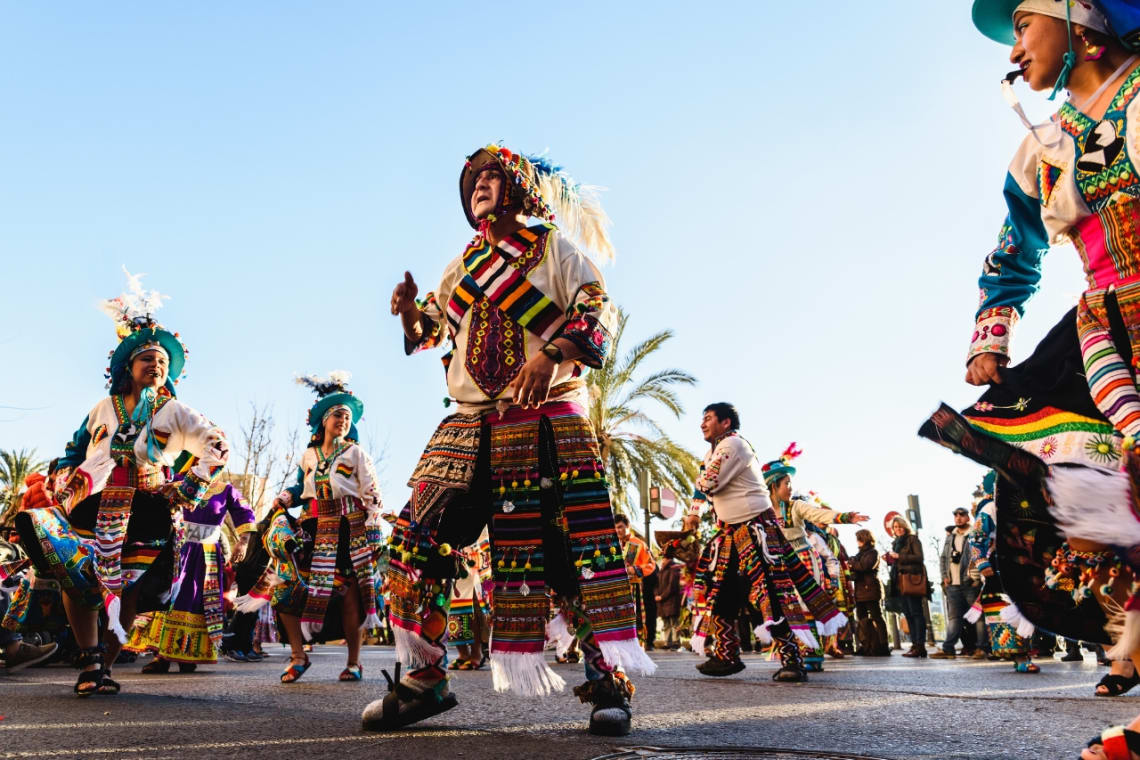
Experience new cultures through food
Diving into the cuisine of different cultures is a unique and tasty way to experience cultural exchanges. It's not just about delighting your palate with novel tastes, but also comprehending the legacy, customs, and beliefs that are embodied in each meal.
Every bite you take while trying local foods offers a deeper insight into their culture. The ingredients used often reflect geographic location and even religious practices, and preparation methods can reveal historical influences.
Eating habits may also differ a lot to what you are used to, and learning about them is a way to show respect as well. For example, most Indians don't use cutlery when eating, but instead do it with their hands. The good manner to do so is by eating only with your right hand, as the left one is considered "unclean", since it is the hand people use for cleaning themselves in the toilet.
Step out of your comfort zone also when eating, trying restaurants from different countries at home, even if you have never heard about their gastronomy. When traveling, instead of searching for food that looks familiar to you, ask locals about their favourite dishes and spots to try them.
You can also participate in cooking lessons to have a deeper understanding about different ethnic cuisines, either at home and abroad. If not having such opportunity in your home town, you can find plenty of resources online.
Learn a new language
When you travel and you're able to communicate with the funny shop vendor, the inspiring musician on the street or the fellow traveler you meet in your hostel dorm, things just get way more interesting.
But isn't only about being able to communicate with the people that speak that language, is also about having a deeper understanding of their culture.
Learning a new language leads to cultural exchange. Take for instance learning Spanish - by doing so you'll also research about Latin American and Spanish music, dances, people, traditions, and differences and similarities between countries.
By assisting to language exchange events in your hometown you can meet a lot of cool fellas that will share their knowledge not only about their language but also about their culture.
If you don't have this chance, websites like Tandem connect users worldwide based upon their desired pairs of languages - so no matter what geographic location one may find themselves in, there will always be someone ready for an interesting conversation.
The definitive step in learning a new language is to spend some time in a country where it's widely spoken. Being sorrounded by that language and having to use it all the time to communicate will greatly accelerate the learning process. A great way to do so without going bankrupt is through Worldpackers' volunteering programs, of which we will talk about below.
More on this topic: Top tips on how to learn a language naturally while traveling and 10 language immersion strategies for your next trip abroad.
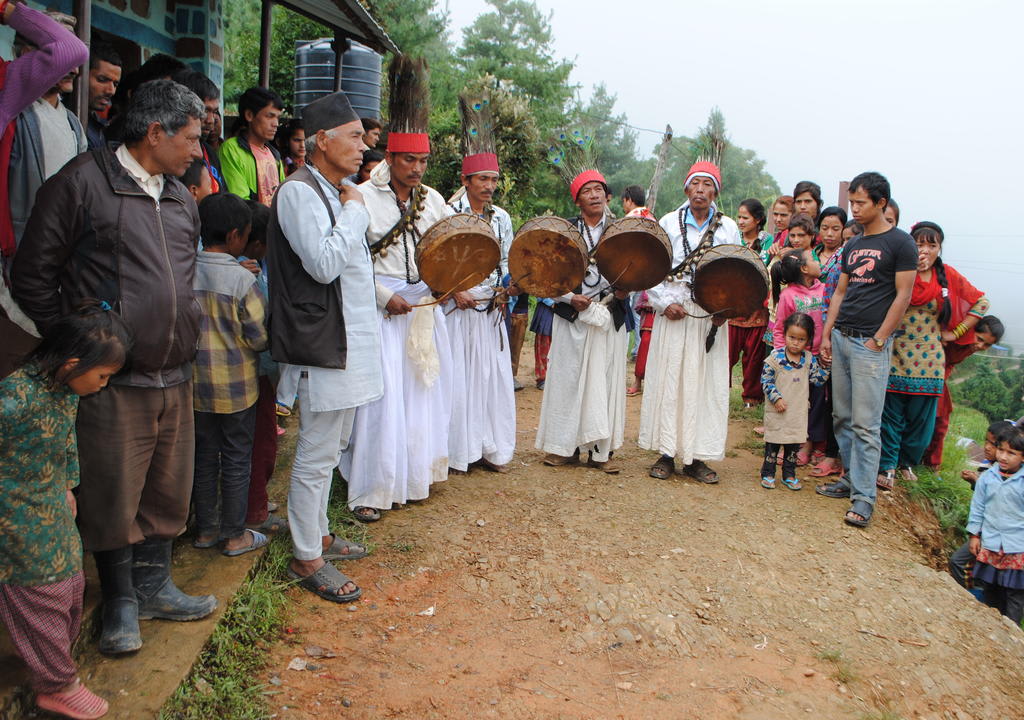
Cultural exchange programs
Globalization and increased access to the internet opens the doors to more possibilities to those interested in having cultural exchanges. There are many resources, such as:
Couchsurfing
Couchsurfing is an online platform dedicated to connect locals and travelers for the sole purpose of fostering cultural exchange.
In this program, local hosts welcome travelers at their homes for free. However, Couchsurfing should not be used solely as a means to save money while traveling. Couchsurfing is about sharing moments with your host. If you don't have the time or energy to connect with your host, you're better off going to a hostel, hotel, or Airbnb.
Couchsurfing also has a feature called "Hangouts", where you can see what people nearby are up to and reach out to anyone you want to hang out with. It's excellent for getting to know people and exchange experiences, plus you receive cool tips about your destination from a local!
You should bear in mind that you will give up privacy by staying at other's people home, and that accommodation will not always be a private room, but it's usually an enriching experience for both the surfers and the hosts.
Read these actionable ways to live like a local while traveling and Why you should travel like a local.
Worldpackers' volunteering programs
Worldpackers is a platform that offers an opportunity for safe travel as a volunteer where you can have life-changing experiences while making a positive impact on the world.
From teaching English in Argentina to volunteering in Las Vegas and living with a local family in Madrid, there are thousands of volunteering opportunities around the world.
In exchange for your help, local hosts will provide you with free accomodation and usually food as well. This means that you'll not only have the chance to travel for cheap, but most importantly, have a cultural exchange by living and working with locals and international volunteers, learn new skills and spend longer time in each destination, leading to a deeper understanding of the place and its people.
To participate, you just need to subscribe to the Worldpackers Community for free and start saving your favorite volunteer positions until you are ready to get verified.
These are some examples of volunteering opportunities around the world:
- Teach English in Bali and explore the "magical island" in your free time.
- Help with animal care between beach paradise and mountain adventure in Puerto Vallarta, Mexico.
- Join a spiritual community in Callaway, USA, and work with them in becoming self-sufficient.
- Help & learn in an organic garden in the Swiss Alps! At "The Farmacy" they teach sustainable organic gardening and have a small B&B.
- This wellness retreat center in Germany focuses on cultural exchange in addition to yoga and ayurveda. You can volunteer here in a number of different areas, including bartending, housekeeping, and gardening.
Learn more about how Worldpackers works: What is a work exchange and how does it work? and Traveling with Worldpackers: your top questions answered.
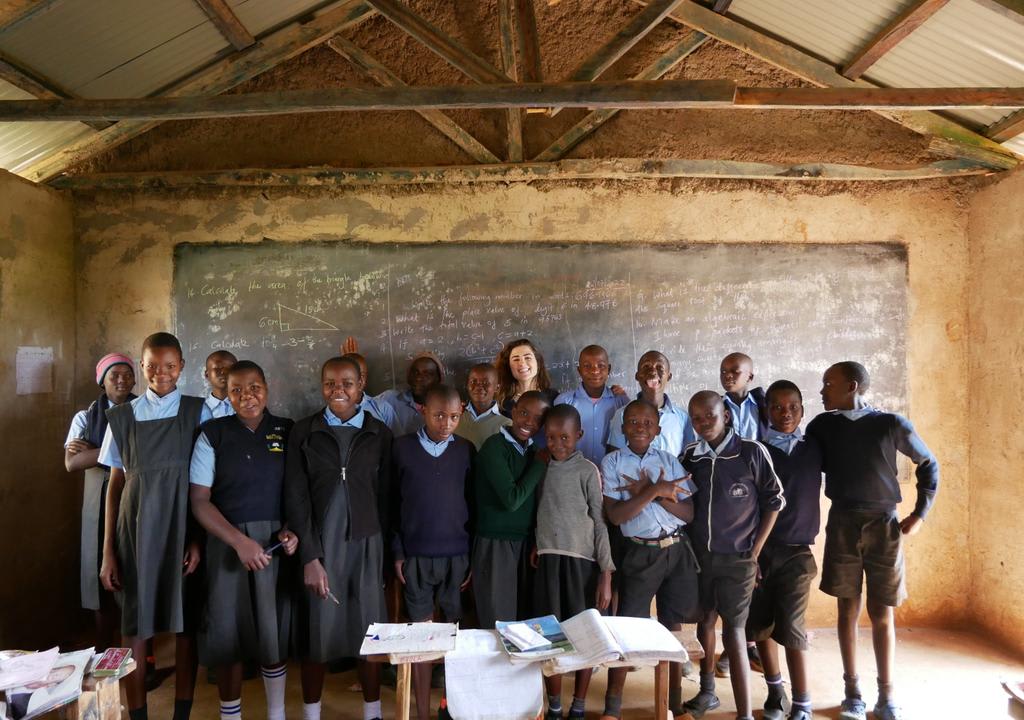
If you like these tips, follow Worldpackers social media to keep up with the news: we are on Instagram and Tiktok.
Sign up as a Host: If you share the feeling of building a resilient and abundant future and believe in the power of volunteering, your journey starts here. Join Worldpackers for free and be part of our community. Connect with committed and open-minded volunteers ready to support your project, strengthen local communities, and create a positive and sustainable impact worldwide.












أيهم
Oct 25, 2023
وين